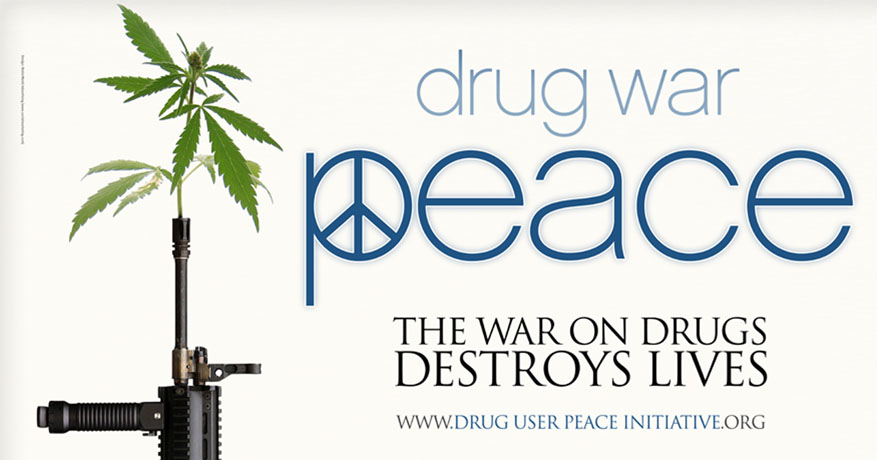January 2015

The so-called ‘war on drugs’ has, with its attendant prohibition of drugs and criminalisation of people who use drugs, driven and exacerbated the risks, harms, and costs that are associated with drug use. In reality, the war on drugs is a war on people who use drugs; it is a war on our health and a war on their human rights. The war on drugs has been a catastrophic failure. It is clear that it needs to end.
INPUD’s Drug User Peace Initiative was conducted in January 2015 in the lead up to the 2016 UN General Assembly Special Session on Drugs (UNGASS) and highlighted some of the most considerable and systemic harms that are done to people who use drugs in the name of the war on drugs. The campaign includes four key documents, all viewable below, each with a specific focus that provide evidence-based arguments which can be used to inform advocacy by drug user activists and their organisations, as well as other drug law reform activists and key stakeholders, and are designed particularly to be used for such purposes leading up to the UNGASS session and beyond.
Executive Summary and Foreward
The Executive Summary and Foreward summarizes the purpose, topics and themes of the Drug User Peace Initiative. It also gives an overview of the UNGASS and why people who use drugs are organising for representation at this important global session.
Stigmatising People who Use Drugs
Inaccurate and crude (mis)understandings of drugs have fed into how people who use drugs are seen: the widely-held, generalising, and unscientific position that illicit drugs are ‘bad’ informs the understanding that people who use drugs are bad too. Stigmatisation drives frequent prejudiced and biased treatment of people who use drugs. This discrimination has corresponding impacts on health and welfare. Stigma, and the discrimination it results in, are what drive the gross violations of the human rights of people who use drugs, and also result in these violations going for the most part unchallenged.
A War on the Health of People who Use Drugs
Not only has prohibition failed to decrease drug use, but the fact is that many of the harms and costs that are associated with drug use are substantially driven by prohibition: most of these harms are, in fact, in and of themselves produced by prohibition and criminalisation. This document explains how prohibition, and prohibitionist ideas, have come to result in so much harm associated with drug use and stresses that the war on drugs is a war on the health and wellbeing of people who use drugs.
Violations of the Human Rights of People who Use Drugs
People who use drugs make up a considerably hidden population due to stigma, discrimination, social exclusion, and criminalising laws: often, people who use drugs need to remain hidden in order to survive. It is therefore impossible to categorically document all of the human rights violations experienced by people who use drugs. It is clear, however, that abuses of the human rights of people who use drugs are extensive and multiple. In this document, INPUD highlights some of the most prevalent and serious violations.
A War on Women who Use Drugs
Systemic and global discrimination towards women feeds directly into the greater vulnerability of women who use drugs to numerous harms. In this document, INPUD highlights how women have come to be disproportionately harmed by prohibition, criminalisation, stigma and discrimination, and social exclusion.